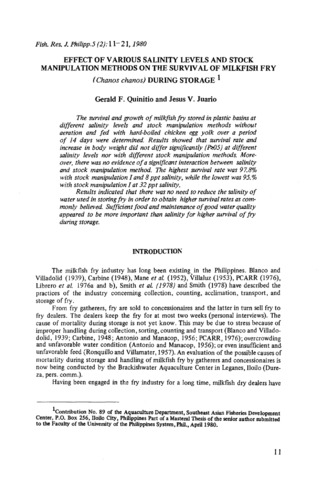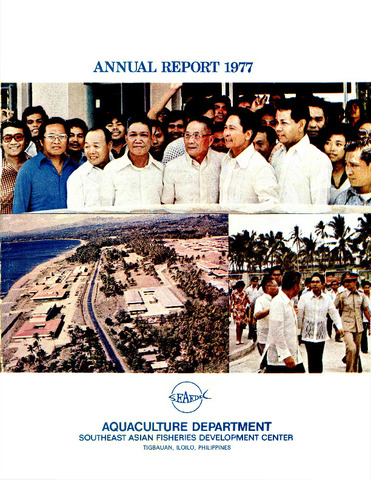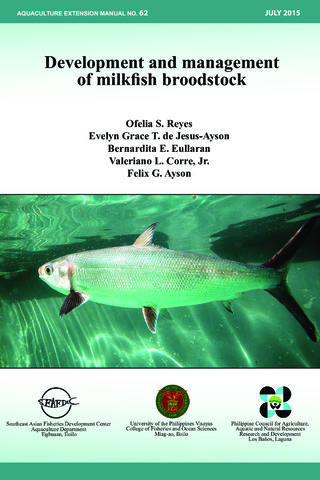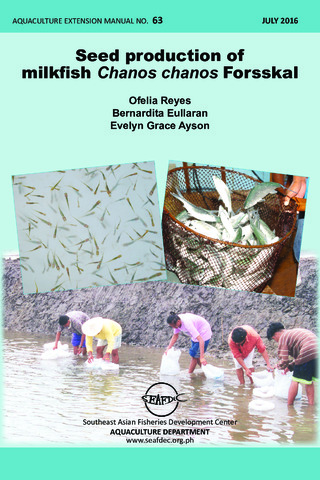Effect of various salinity levels and stock manipulation methods on the survival of milkfish fry (Chanos chanos) during storage.
Share
Abstract
The survival and growth of milkfish (Chanos chanos ) fry stored in plastic basins at different salinity levels and stock manipulation methods without aeration and fed with hard-boiled chicken egg yolk over a period of 14 days were determined. Results showed that survival rate and increase in body weight did not differ significantly (P > .05) at different salinity levels nor with different stock manipulation methods. Moreover, there was no evidence of a significant interaction between salinity and stock manipulation method. The highest survival rate was 97.8% with stock manipulation 1 and 8 ppt salinity, while the lowest was 95.% with stock manipulation 1 at 32 ppt salinity.
Results indicated that there was no need to reduce the salintiy of water used in storing fry in order to obtain higher survival rates as commonly believed. Sufficient food and maintenance of good water quality appeared to be more important than salinity for higher survival of fry during storage.
Description
Contribution No. 89 of the Aquaculture Department, SEAFDEC.
Suggested Citation
Quinitio, G. F., & Juario, J. V. (1980). Effect of various salinity levels and stock manipulation methods on the survival of milkfish fry (Chanos chanos) during storage. Fisheries Research Journal of the Philippines , 5(2), 11-21. http://hdl.handle.net/10862/1096
Subject
Taxonomic term
Collections
- AQD Journal Articles [1231]
Related items
Showing items related by title, author, creator and subject.
-
Annual report 1977
Southeast Asian Fisheries Development Center, Aquaculture Department (Aquaculture Department, Southeast Asian Fisheries Development Center, 1978) -
Development and management of milkfish broodstock
Reyes, Ofelia S.; de Jesus-Ayson, Evelyn Grace T.; Eullaran, Bernadita E.; Corre Jr., Valeriano L.; Ayson, Felix G. (Aquaculture Department, Southeast Asian Fisheries Development Center, 2015)The manual provides developed and refined techniques for collection and transport of spawned eggs and larvae, as well as larval rearing. It also describes the necessary facilities for maintaining milkfish broodstock. Guidelines ... -
Seed production of milkfish Chanos chanos Forsskal
Reyes, Ofelia; Eullaran, Bernadita; Ayson, Evelyn Grace (Aquaculture Department, Southeast Asian Fisheries Development Center, 2016)A 26-page manual describing the site selection, hatchery design, spawning, larval rearing, natural food production, and economic analysis for milkfish.






